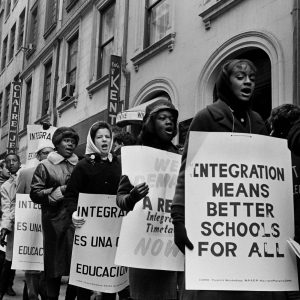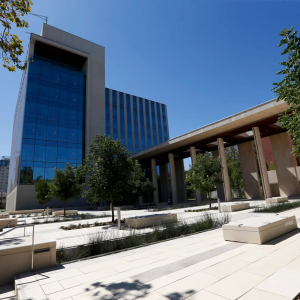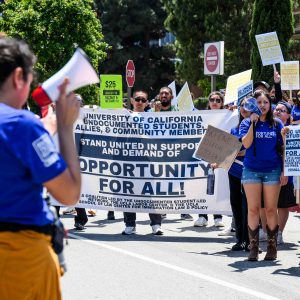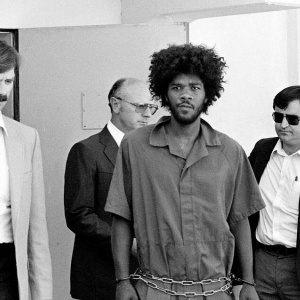In 1972 Congress passed Title IX, a sweeping policy of the Education Amendments that protects students from discrimination based on sex in education programs or activities that receive federal financial assistance. Title IX was, and still is, monumental legislation for the protection of women on college campuses: it mandates, among other things, the creation and funding of female sports teams equal to male sports teams.
Title IX also created legislative foreground for prosecuting sexual harassment on college campuses. By instituting legislation against sexual discrimination, Congress paved the way for victimized female students to take action against their offenders and hold universities accountable for previous and continuing negligence of sex crimes. Under the current interpretation of Title IX, sexual harassment can be prosecuted if it is “’so severe, pervasive, and objectively offensive that it effectively bars the victim’s access to an educational opportunity or benefit.’ Courts have generally found that even a single instance of rape or sexual assault by another student meets this standard.”
Title IX is applicable to any educational institution that receives federal funding; this includes private colleges and universities that accept federal funding in the form of financial aid for students. Thus, almost every college and university in the United States falls under the jurisdiction of Title IX, and is mandated to have grievance procedures for students to take action against sex-discrimination. Government standards for these grievance procedures are vague and relatively open: they mandate that when complaints are filed, all parties be notified; application of ‘procedure’ be carried out; an impartial investigation of complaint be conducted; reasonably prompt response provided; notice of outcome to those involved; prevention of future incident. These Title IX standards allow educational institutions significant leeway in interpreting how to take action and determine procedure to prevent sexual harassment.
In most California schools (barring religiously exempted institutions), there is a Title IX officer that reviews cases and writes the school’s procedural guidelines. These procedural guidelines, however, are still noticeably lacking cohesive direction. California Community Colleges lists a vague procedural guideline that can only get more specific on a case by case basis. The University of California has a more specific guideline that standardizes an understanding of consent and prohibited conduct. Similarly, each private school has its own interpretation and Title IX office.
These government standards for grievance procedures are created and maintained by the US Department of Education. Therefore, with every new Secretary of Education, these standards are subject to alteration. The current Secretary of Education, Betsy DeVos, has proposed changes to Title IX and has faced severe criticism from leaders of college campuses, civil liberty unions, and the general public. DeVos has drafted policy “which established a narrower definition of sexual harassment, tightened reporting requirements, relieved colleges of the responsibility to investigate off-campus episodes, and outlined steps schools should take to provide support for accusers.” DeVos’s policy also allows schools to “choose a higher evidentiary standard, establish an appeals process, and offer the option of cross-examination.” These proposed changes make reporting sexual assault more difficult for the victim and loosens the – already small and vague – burden of responsibility for schools investigating discrimination.
In 2000, the US Department of Justice released a report titled, “The Sexual Victimization of College Women”. The Bureau of Justice Statistics reveal the frightening reality of sexual violence and harassment under the current interpretation of Title IX.
95% of rapes were found to be unreported. 99% of completed sexual contact with force is unreported. 100% of sexual coercion is unreported.
With such horrifying statistics, why does the current Secretary of Education suggest loosening the protection of victims?
The Department of Justice also investigated the process of psychological reasoning within a victim that could account for the shocking under-reporting of sex crimes. They found that an overwhelming majority didn’t think that assault was “serious enough to report.” The other reasons listed for not reporting are fear of being treated hostilely by the justice system, fear that police wouldn’t take the report seriously, retaliatory social reprisal by an assailant and others, and lack of proof that an incident happened.
The current system is failing sexual assault victims, and DeVos’s policy will further damage the already-broken system.
The Title IX office of the University of California responded to the proposed changes and argued that DeVos’s policy “will reverse decades of well-established, hard-won progress toward equity in our nation’s schools, unravel critical protections for individuals who experience sexual harassment, and undermine the very procedures designed to ensure fairness and justice.”
Although DeVos’s proposed changes haven’t yet passed through Congress, California is already seeing similar destruction of the flawed Title IX progress. In a recent California appellate court ruling, a dangerous precedent for investigating sexual harassment was established. In 2014, the University of Southern California expelled a student that, after a university driven investigation, was found guilty of rape. The defendant appealed his case and argued that he was denied fair process and that the case lacked substantial evidence. Specifically, the defendant argued that “USC deprived [him] of his right to cross examine witnesses, and instead relied on Dr. Allee”, USC’s investigator, “to conduct her self-proclaimed thorough and impartial investigation.”
Dr. Allee had witness testimony from three individuals concerning the night of the reported rape; Allee found that each report supported that the assault had occurred and was forced on the victim. In response, the defense argued that “‘if a university is faced with competing narratives about potential misconduct,’ some form of in-person questioning is required to enable ‘the fact-finder [to] observe the witness’s demeanor under that questioning’]”. They felt that Dr. Allee’s investigation was unfair because it did not allow for cross-examination of victim testimony.
The appellate court decided that, “where a student faces a potentially severe sanction from a student disciplinary decision and the university’s determination depends on witness credibility, the adjudicator must have the ability to observe the demeanor of those witnesses in deciding which witnesses are more credible.” This new precedent, allowing cross-examination of accuser testimony, has halted Title IX investigations on California college campuses. Every California university/college must redefine their Title IX policies and procedures with this new precedent. As it currently stands, “accused students are not allowed to directly confront their accusers but may pose questions through a Title IX investigator who meets separately with each of them.” With this new ruling, educational institutions must change the format of questioning to a system much more like a courtroom.
The incident-report rate is already incredibly low, unacceptably low. This new precedent will absolutely make victims even more reluctant to report assault. If a victim doesn’t feel safe or supported under the current procedure, how will expanding the questioning process help? This precedent is allowing the direct questioning of the victim by the accused; it will force victims to face their accusers face-to-face in a public trial.
“…every single campus Title IX process is going to replicate what happened in the Senate Judiciary Committee against Dr. Christine Blasey Ford,” said Jess Davidson, the interim executive director of End Rape on Campus. This precedent will destroy report-rates and propagate rape culture.
Sexual assault crimes are unlike most others. There is often no evidence of a sexual assault, but that does not mean the incident did not occur. If someone forcibly kisses and gropes someone on the street, there likely won’t be evidence of it happening, except for possible witness testimony. And witness testimony, in such sensitive situations, is hard to come by. No person wants to publicly admit that they have been victimized by another person. It’s not an easy process for victims to tell their communities of a scarring assault that happened to them. There is a culture of shame around assault that prevents victims from coming forward; the Justice Department’s statistics prove this completely. And when a victim does courageously come forward, DeVos and California’s courts suggest we force them to face their assailant? This California court precedent and DeVos’s proposed policy are taking leaps in the wrong direction.






Be First to Comment